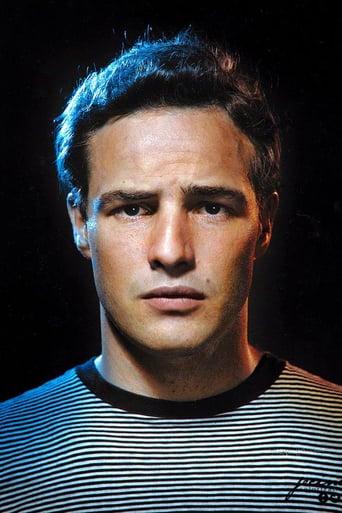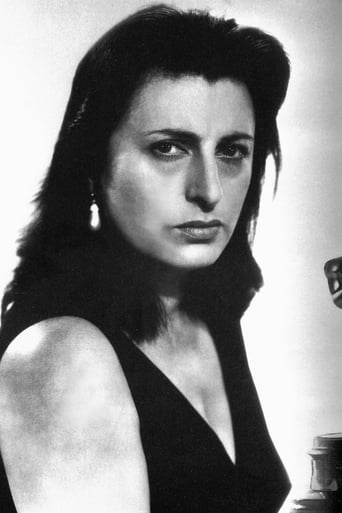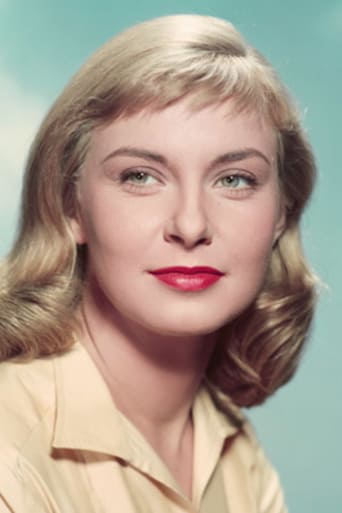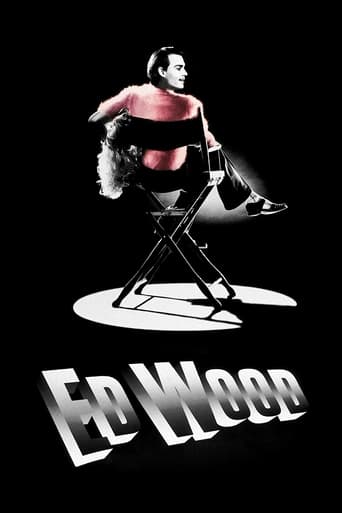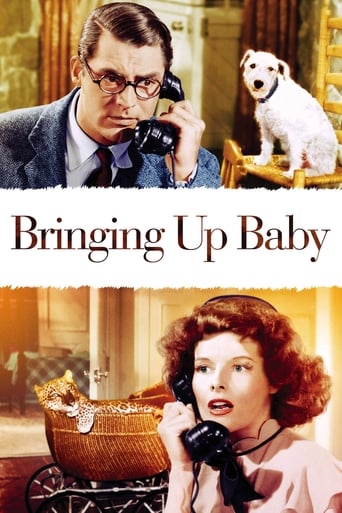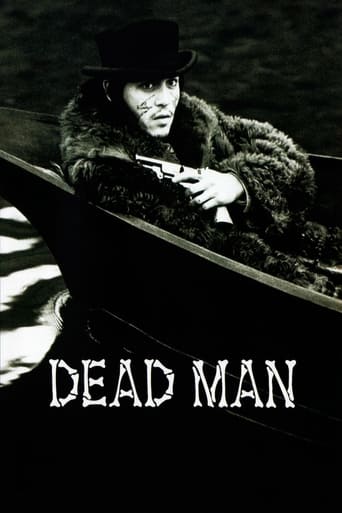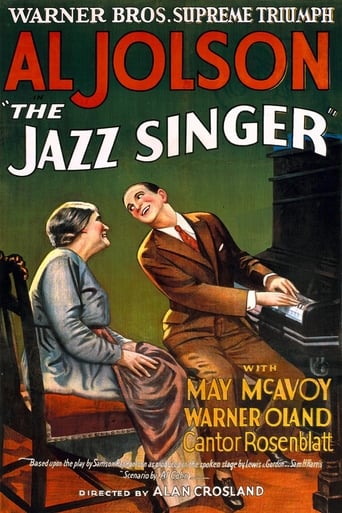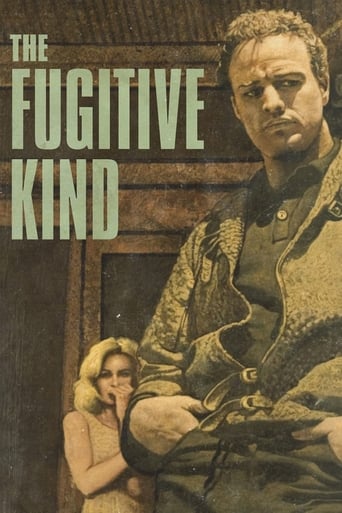
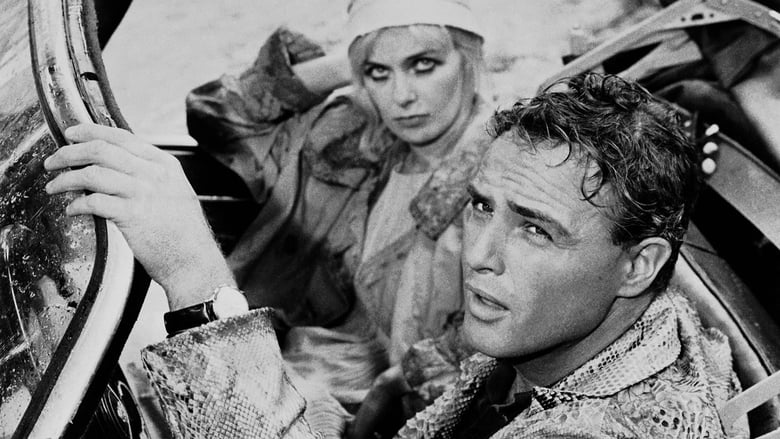
The Fugitive Kind (1960)
Val Xavier, a drifter of obscure origins, arrives at a small town and gets a job in a store run by Lady Torrence. Her husband, Jabe M. Torrance, is dying of cancer. Val is pursued by Carol Cutere, the enigmatic local tramp-of-good-family.
Watch Trailer
Cast
Similar titles

Reviews
Highly Overrated But Still Good
Admirable film.
The acting in this movie is really good.
The movie's neither hopeful in contrived ways, nor hopeless in different contrived ways. Somehow it manages to be wonderful
"The Fugitive Kind" was another collaboration between Marlon Brando and playwright Tennesse Williams. The play is about a young drifter (Brando) who comes to this small town in Mississipi after being in trouble with the law. Upon trying to settle down after acquiring a job, he soon finds himself at the centre of a love triangle. Two local women are competing for Brando's affections and it isn't long before trouble is on the horizon......... Williams applies the sexual tension until the drama reaches fever pitch and finishing with a shattering climax. The performances from the three leads are strong and they make this film worth sticking with. Victor Jory as the sadistic alcoholic husband, gives the best performance from the supporting cast. The direction is largely uninspired and the narrative isn't quite as coherent as it should have been. The running time seemed longer somehow. There isn't much room for any humour or mirth in the play but you get used to that. "The Fugitive Kind" is a more overlooked film from Marlon Brando's career but it is fairly good.
Not one of the best by Tennessee Williams, a lot of overwritten speeches and blatant metaphors. The core cast -- Brando, Magnani, and Woodward -- are all very good, and Stapleton is wonderful in her small role. The characters are the usual bunch of wild cards and frustrated souls, and the drama involves some pretty heady subject matter. Lumet's direction is strong too, with some wonderful camera-work and staging. Even the score is good. It's just the dialogue that stinks. It's not all bad, but boy there are a few big eye-rollers in there. Still, it's worth seeing for the performances and Brando fans shouldn't be disappointed.
Marlon Brando plays a drifter that wanders into town in this Tennessee Williams film. As soon as he arrives, he receives some help but a nice but addle-brained lady (Maureen Stapleton), is repeatedly the object of a nympho's attentions (Joanne Woodward) and meets a sad and tired lady (Anna Magnani) whose husband is dying of cancer. Magnani's character is rather pitiful, as her husband (Victor Jory) is a cancerous man in personality, too. He is cruel, coarse and just plain nasty. And, after a while, Brando and Magnani begin an affair.This might just be my least favorite Tennessee Williams film. I think most of it is because the chemistry between Magnani and Brando seems forced. It also is because the film is rather talky and slow--and with less fireworks than you'd expect from a Williams script. Yes, it's tawdry, but not nearly as tawdry as films like "Baby Doll", "Sweet Bird of Youth" and "A Streetcar Named Desire". I am about to say something that I am sure will ruffle a few feathers--and it's the biggest reason why this movie doesn't work for me. Although Anna Magnani was a huge star for a few years in the US (with this film and her Oscar-winning performance in "The Rose Tattoo"), I have never understood her appeal in these films. While she supposedly exuded sex appeal, I just never saw this at all nor did I understand comments about how great her acting was, as she could barely speak English. And so, the idea of her character having an affair with the much younger Marlon Brando just made no sense to me--and the chemistry wasn't very convincing. I know this sounds harsh--but I think this makes her films age poorly. If you want to see a better Magnani movie, try finding one of her earlier Italian ones--they can be quite good.With a different cast, this would have worked a lot better. And, despite the odd casting and some overacting by Woodward, it's still a decent film. There's enough hypocrisy and sleaze to make Tennessee Williams fans happy and Brando gives one of his better performances. Plus, the ending is a corker.
The Fugitive Kind (1960)This is one of those great movies that slips its way into that big gap between the great Hollywood Golden Age to the great New Hollywood of the late 1960s. An awful lot of films from the period between (1955-65) are weak or even downright bad, big budgets and all. The Hollywood gems in that time are usually a little gut wrenching, and many are based on plays, or push political issues (I'm thinking of "The Apartment" and "The Manchurian Candidate"). The famous directors coming to their own during time include Elia Kazan and Robert Wise, and of course Sidney Lumet, who directed this one.This is all working class, plainspeaking, emotive material. Right from the get-go with leading man Marlon Brando doing a long take as he stands before a judge, we are filled with heart-wrenching stuff, people who want to be something and don't know how, or people with big hearts that are broken or dirty. The cast, beyond Brando, is terrific: Joanne Woodward as a young floozy with a sharp sense of independence, Maureen Stapleton as a simple and faith filled wife of the sheriff, and Anna Magnani, intense and troubled but superior in her own out of place way.There are powerful displays of white narrow-mindedness (call it bigotry, but it is largely aimed at just anyone they don't like) that don't quite fall into clichés, there is love that shouldn't be and that never is, there is old world morality and inbred local gossipy immorality. Things are bound for collision even by twenty minutes in, and there are innuendoes and hidden histories waiting to blossom. Lumet has a knack for the serious, with his 1957 breakthrough film "12 Angry Men" a template for his career. As lively and even crazy as this movie is, it's also probing deeply into human woe and maladjustment (often deliberate). The core of the writing belongs to Tennessee Williams, who of course is all about inner troubles and outward misunderstood or mistaken actions. There is nothing superficial here, not in the acting, the filming, or the scenes (set in the South but filmed near Saratoga Springs, New York). And if the wet, dark nights scenes and interiors with people quarreling and fighting aren't enough to suck you in, the story, about wanting to live, nothing more, is beautiful and important. All four of the main characters are deeply good people, and all flawed in small but debilitating ways. Which should sound familiar. As over the top as it sometimes seems, you'll identify with the position some of the people end up in. Brando is temperamental but patient and with a profound sense of justice. Woodward is a free spirit misunderstood (and punished) by the uptight and hypocritical society around her. The themes are frank for 1960, including an implication of a male so manly and irresistible the women want him (and get him) even when it's completely wrong. And when it's right. The sexuality, partly pumped up by the writing of the openly gay playwright (Williams), is all over Brando's face and in his scenes. And this is his movie.High high drama, but from within. And explosive. Don't miss it.
